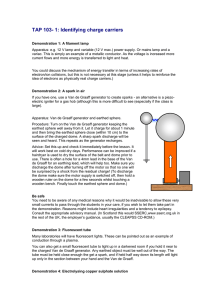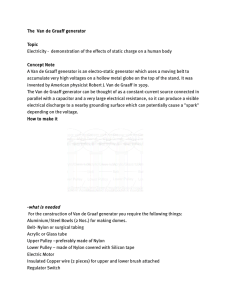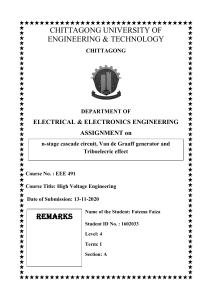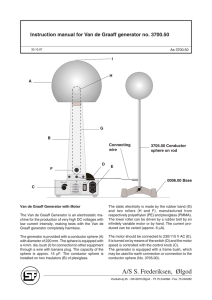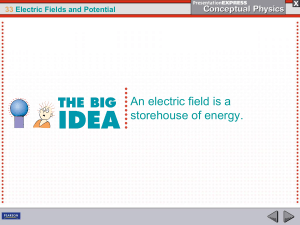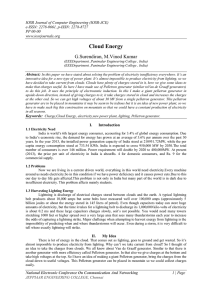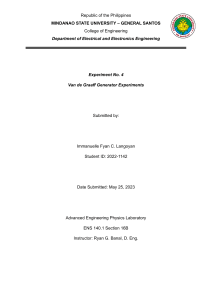Van de Graaff Generator Project Report
advertisement
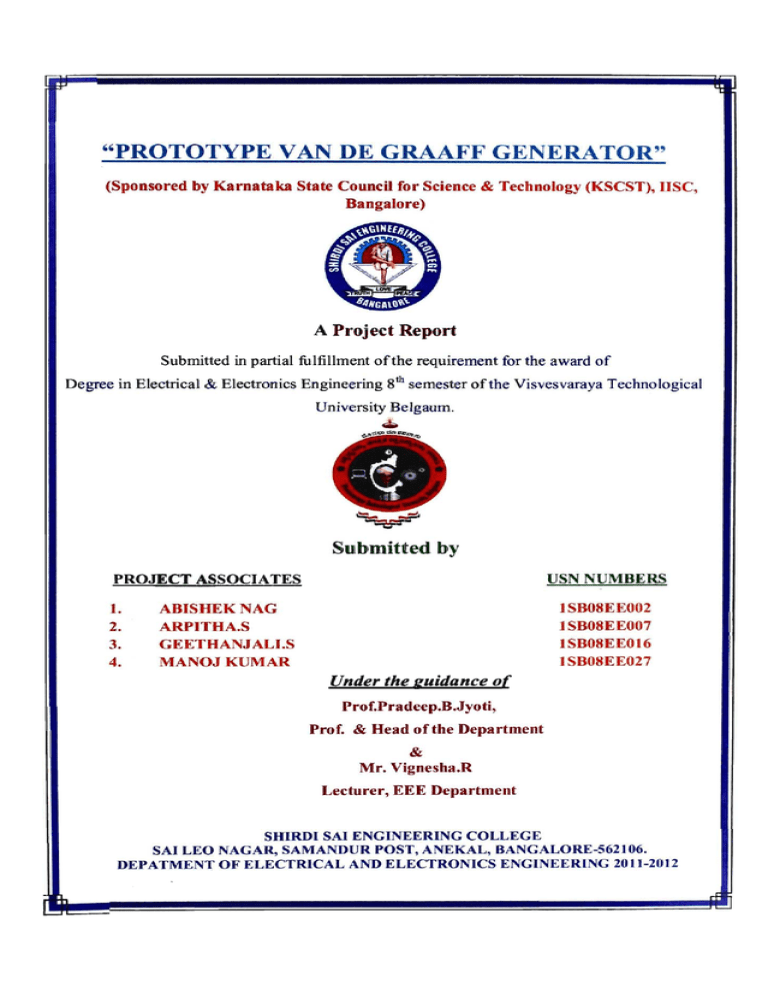
"PROTOTYPE VAN DE GRAAFF GENERATOR" (Sponsored by Karnataka State Council for Science & Technology (KSCST), DSC, Bangalore) A Project Report Submitted in partial fu lfillment of the requirement for the award of Degree in Electrical & Electronics Engineering 8th semester of the Visvesvaraya Technological University Belgaum. Submitted by USN NUMBERS PROJECT ASSOCIATES 1. 2. 3. 4. lSB08EE002 lSB08EE007 ISB08EE016 lSB08EE027 ABISHEKNAG ARPITHA.S GEETHANJALI.S MANOJKUMAR Under the guidance of Prof.Pradeep.B.Jyoti, Prof. & Head of the Department & Mr. Vignesha.R Lecturer, EEE Department SHIRDI SAl ENGINEERING COLLEGE SAl LEO NAGAR, SAMANDUR POST, ANEKAL, BANGALORE-562106. DEPATMENT OF ELECTRICAL AND ELECTRONICS ENGINEERING 2011-2012 ABSTRACT A Van de Graaff generator is an electrostatic generator which uses a moving belt to accumulate very high voltages on a hollow metal globe on the top of the stand. It was invented in 1929 by American physicist Robert J. Van de Graaff. The potential differences achieved in modern Van de Graaff generators can reach 5 megavolts. The Van de Graaff generator can be thought of as a constant-current source connected in parallel with a capacitor and a very large electrical resistance. The device is called a Van de Graaff generator. Science museums and research facilities have large versions that generate potentials in the hundreds of thousands of volts. Ours is more modest, but is still capable of drawing 112 inch sparks from the soda can to my finger.The spark is harmless, and similar to the jolt you get from a doorknob after scuffing your feet on the carpet. Air ionizes in an electric field of about 25,000 volt per inch. Ionized air conducts electricity like a wire does. You can see the ionized air conducting electricity, because it gets so hot it emits light. It is what we called a spark. Since our generator can draw sparks that are about a half inch long, we know we are generating about 12,500 volts.


